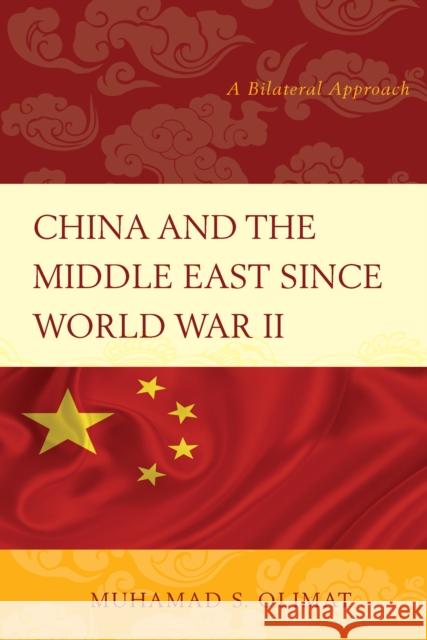China and the Middle East Since World War II: A Bilateral Approach » książka
China and the Middle East Since World War II: A Bilateral Approach
ISBN-13: 9781498502702 / Angielski / Twarda / 2014 / 352 str.
China and the Middle East Since World War II: A Bilateral Approach
ISBN-13: 9781498502702 / Angielski / Twarda / 2014 / 352 str.
(netto: 527,09 VAT: 5%)
Najniższa cena z 30 dni: 545,55
ok. 30 dni roboczych.
Darmowa dostawa!
This book examines Sino-Middle Eastern relations on a bilateral level since World War II. It highlights the depth of China's involvement in the region with each country on a five dimensional approach: energy security, trade relations, political relations, arms sales/security cooperation, and cultural relations. Regarding each of these criteria, the Middle East holds a strategic significance to China's national security, vital interests, territorial integrity, sovereignty, regime survival, and economic prosperity. China has been an integral part of the political developments on the Middle Eastern political scene. It has supported the region's quest for independence and national liberation, exchanged diplomatic recognition with the region and established political partnerships with the Middle East. Trade relations are an essential element of China's involvement in the Middle East. Their bilateral trade volume exceeds $220 billion annually, and is steadily heading toward $500 billion by the end of 2015. The Middle East supplies fifty-four percent of China's energy needs, and is expected to provide seventy percent of China's imports by 2020. Energy security has become the core of Sino-Middle Eastern relations and the main goal of its increasing involvement in the region. China has also become a main source of arms sales to the region. The Middle East influenced Chinese culture and language immensely, simultaneously, influenced by Chinese culture, traditions and customs. Apparently, the peoples of the Middle East are enthusiastic about China's role in the region. However, the American so called "pivoting out" and China's imminent "pivoting in" brings tremendous levels of anxiety in the region. A similar situation occurred a century ago, when the people of the region, the social and political movements in the Middle East, and the governments of the region, solicited and welcomed the American involvement in the region, something they deeply resent and regret. China seems to be going through the same path, and the people of the region have begun to scrutinize its presence. If Beijing continues its inconsistent policy in the region, its injudicious support to autocracies, it will defiantly mobilize popular resentment against its involvement in the Middle East. Therefore, its presence might not endure in comparison to the American, British, or French presence in the Middle East.











